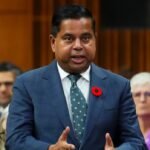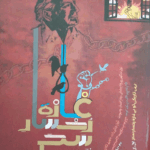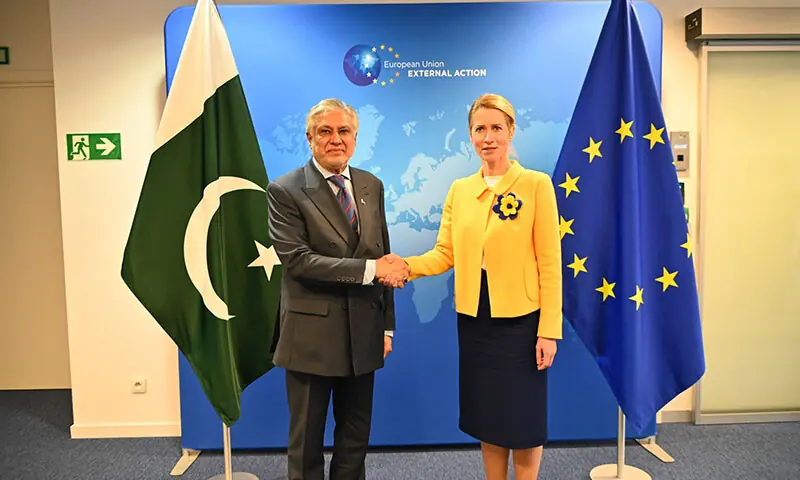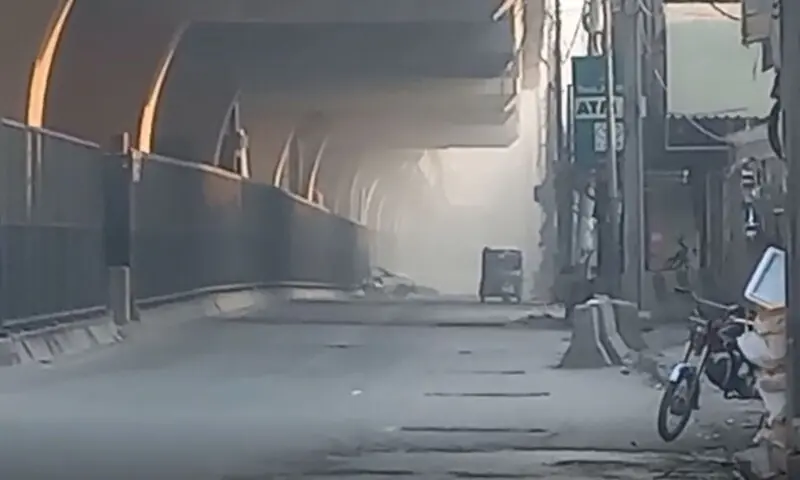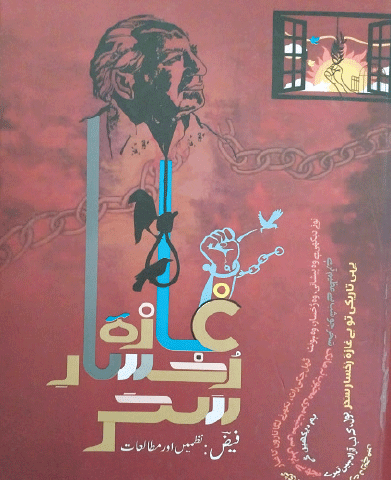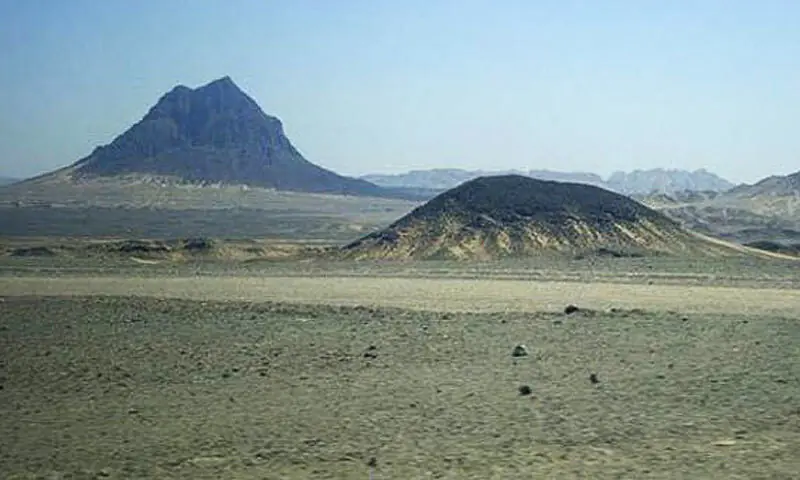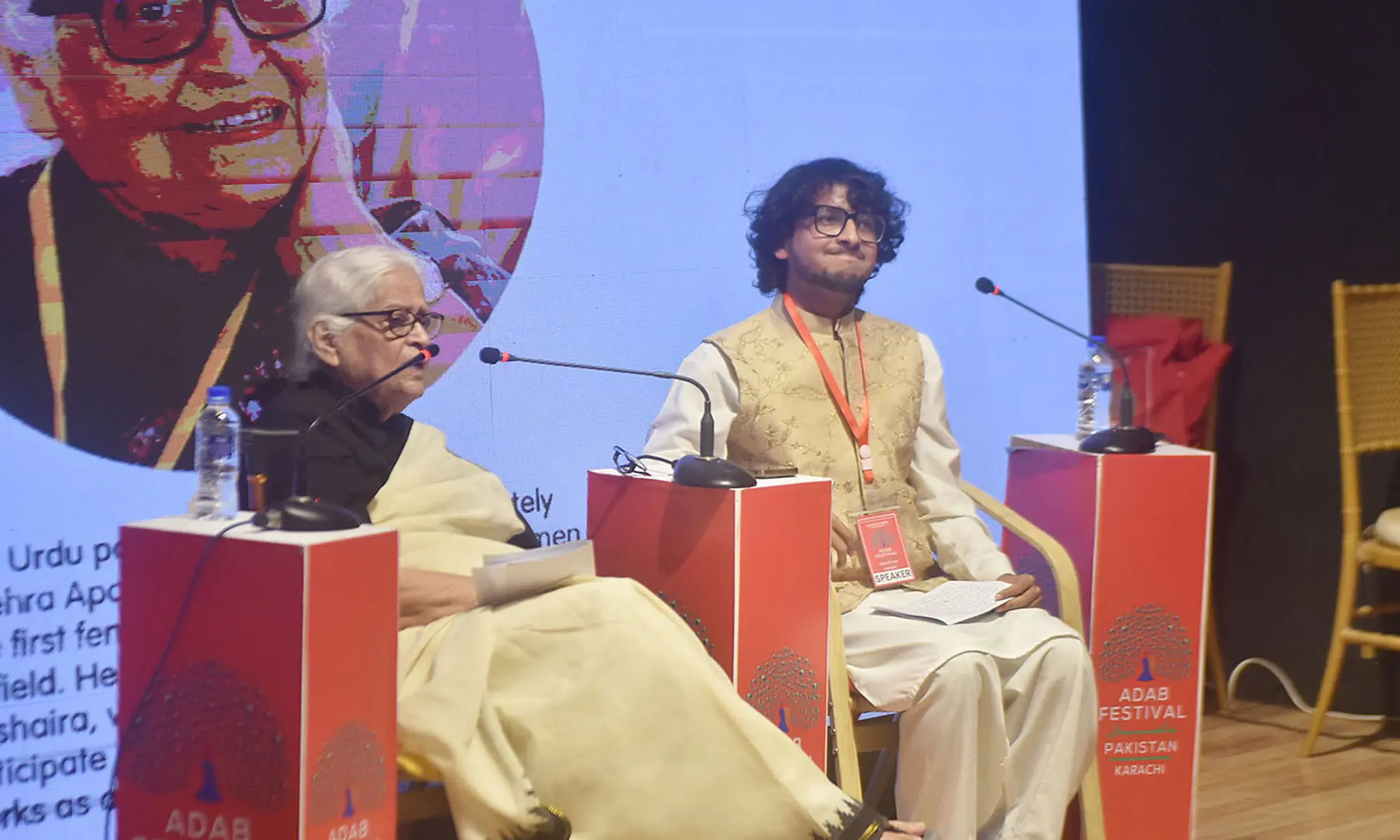In a joint statement shared on Sunday, Pakistan and the European Union (EU) called on Afghanistan to deal with terrorist organizations operating from its territory and ensure the protection of human rights, especially those of women and girls.
The development took place when the seventh Strategic Dialogue between Pakistan and the EU was convened in Brussels. The meeting was co-chaired by the Deputy Prime Minister and Minister of Foreign Affairs, Ishaq Dar, and the head of EU diplomacy, Kaja Kallas.
According to a joint statement shared by the Ministry of Foreign Affairs (FO), Dar and Kallas discussed relations between Islamabad and Kabul amid cross-border tensions last month, with both senior diplomats reaffirming their commitment to regional peace, stability and prosperity and resolving issues with neighbors through dialogue.
“Both sides called on Afghanistan’s de facto authorities to play a constructive role in achieving the shared goal of eradicating terrorism from Afghan soil,” the statement said.
He added that Dar and Kallas expressed concern about Kabul’s deteriorating socio-economic conditions and were in favor of a “peaceful, stable and self-reliant Afghanistan.”
They also expected Afghanistan to advocate for a “credible political process aligned with the UN-led ‘Doha process’ and in line with the commitments made by the Taliban de facto authorities to the international community,” according to the statement.
He added that the EU appreciated that Pakistan had hosted millions of Afghan citizens for more than four decades, but stressed that any repatriation must be “safe, dignified and in line with international standards.”
“Both sides called on the Afghan authorities to ensure the protection of human rights, especially of women, girls and vulnerable communities,” the statement read.
Breaking ties between Pakistan and Afghanistan
Pakistan’s bilateral relations with Afghanistan have been strained in recent times as the Tehreek-i-Taliban Pakistan (TTP) remains the main point of contention between the two countries.
Pakistan has demanded that Kabul’s rulers take action to stop cross-border terrorism, but the Afghan Taliban denies Islamabad’s accusations that terrorists are being allowed to use Afghan soil to carry out attacks in Pakistan.
During a dialogue process, which followed the border confrontations between the two countries in October, both sides had met in an effort to work on mechanisms for lasting peace and stability between the two countries.
On October 25, the second round of talks The confrontation between both parties began in the Turkish capital. But Information Minister Attaullah Tarar then announced that the talks “failed to reach any viable solution.”
However, mediators Turkiye and Qatar intervened and administered to save the dialogue process with an October 31 joint statement issued by Turkiye stating that “other implementation modalities will be discussed and decided” during a top-level meeting in Istanbul on November 6.
However, on November 7, after the third round of talks, Defense Minister Khawaja Asif saying that talks on cross-border terrorism had “ended” and “entered an indefinite phase” as negotiators failed to bridge deep differences between the two sides.
After the failure of the talks, the Afghan Taliban suspended trade links with Islamabad. Pakistan had already closed its border to trade shortly after the October clashes.



